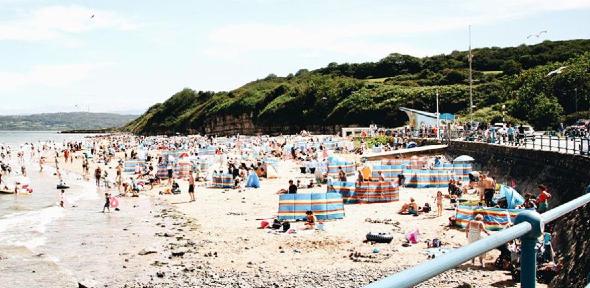
A team led by Professor Flora Samuel from Cambridge’s Department of Architecture has been awarded one of four new £4.625 million Green Transition Ecosystem grants by the Arts and Humanities Research Council (AHRC) to create a Community Open Map Platform (COMP) for Future Generations to chart the green transition on the Isle of Anglesey/Ynys Môn.
Despite changes to the HM Treasury Green Book to encourage forms of valuation other than economic, local authorities are struggling to capture social, environmental and cultural value in a way that feeds into their systems and processes. This new project aims to make this easy by spatialising data so that it can be used as a basis for targeted hyperlocal action for a green transition.
"Climate change cannot be addressed without revealing and tackling the inequalities within society and where they are happening. Only when we know what is happening where, and how people are adapting to climate change can we make well informed decisions," Professor Flora Samuel, Dept of Architecture
Green Transition Ecosystems (GTEs) are large-scale projects that focus on translating the best design-led research into real-world benefits. Capitalising on clusters of design excellence, GTEs will address distinct challenges posed by the climate crisis including, but not limited to, realising net zero goals. GTEs are the flagship funding strand of the £25m Future Observatory: Design the Green Transition programme, funded by the AHRC and delivered in partnership with the Design Museum.
The Isle of Anglesey/Ynys Môn in North Wales was chosen as the case study for this project largely because it is a discrete geographical place that is rural, disconnected and in decline, with a local authority that has high ambitions to reinvent itself as a centre of sustainable innovation, to be an 'Energy Island’ at the centre of low-carbon energy research and development. The bilingual context of Anglesey provides a particular opportunity to explore issues around multilingual engagement, inclusion and culture – a UK-wide challenge.
Read the full University of Cambridge article.
Image credit: Ellena McGuinness on Unsplash

